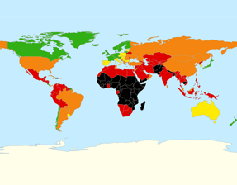Children of Switzerland
Realizing Children’s Rights in Switzerland


Far from its image as a chocolate making fiscal paradise, Switzerland also has a hidden side: progress remains to be made in realizing Children’s Rights, especially in the areas of abuse, reception of child refugees, discrimination, poverty …
Population: 7,6 million Life expectancy: 82,6 years |
Main problems faced by children in Switzerland:
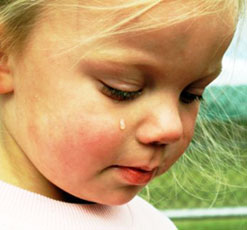 The Convention on the Rights of the Child condemns every form of violence used against children: in Switzerland, since 1978, a parent’s right to punish a child has been outlawed. Nevertheless, corporal punishment is not expressly forbidden in this Swiss law.
The Convention on the Rights of the Child condemns every form of violence used against children: in Switzerland, since 1978, a parent’s right to punish a child has been outlawed. Nevertheless, corporal punishment is not expressly forbidden in this Swiss law.
To date, there are no exact statistics available on the frequency of this type of violence, but professionals estimate that between 10-20% of Swiss children will be affected by abuse in one form or another over the course of their childhood.
The Committee on the Rights of the Child has expressed concern over this situation and has encouraged Switzerland to run awareness campaigns about the negative effects of violence against children.
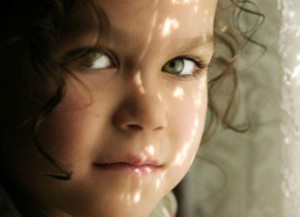 In 2008, a national research program revealed that children in Switzerland are raised in unequal conditions. There is a group of children that does not fully benefit from the rights guaranteed by the UNCRC. Teaching methods and parents’ work conditions, as well as social and cultural origins, create significant discrepancies in children’s schooling and success.
In 2008, a national research program revealed that children in Switzerland are raised in unequal conditions. There is a group of children that does not fully benefit from the rights guaranteed by the UNCRC. Teaching methods and parents’ work conditions, as well as social and cultural origins, create significant discrepancies in children’s schooling and success.
Likewise, differences in the systems between the various Swiss cantons lead to differential treatment of children: for example, in the cantons where children are soon divided by level in secondary school, children with learning difficulties and children of immigrants, are less likely to meet with success. It has been shown that these children are four times more likely to be placed in a special class and not continue their studies thereafter.
Suicide
Switzerland is in the unfortunate position of being among those countries with the highest suicide rate. In fact, suicide is the leading cause of death among15 to 24 year olds. The statistics reveal that, in Switzerland, one out of every twenty youths has tried to take his/her own life: one adolescent commits suicide every three days. Relatively easy access to a number of lethal means and in particular, access to firearms, is a principal cause for this.
Switzerland remains one of the only countries in Western Europe that does not have a national suicide prevention program. A motion was recently brought before Parliament to better study and understand this phenomenon at the Federal level.
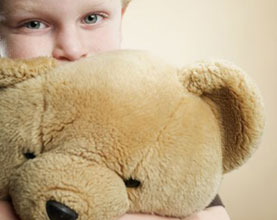 Switzerland has the reputation of being a rich country: yet, almost 9% of the population lives below the poverty line. According to the Swiss Federal Statistical Office, 4.4% of children between 0 and 17 years of age are the recipients of social assistance, which also represents the age group that is most affected by poverty. Around 45% of people who are dependent on social assistance are children. Those families that are most affected by poverty in Switzerland are generally large or run by a single-parent.
Switzerland has the reputation of being a rich country: yet, almost 9% of the population lives below the poverty line. According to the Swiss Federal Statistical Office, 4.4% of children between 0 and 17 years of age are the recipients of social assistance, which also represents the age group that is most affected by poverty. Around 45% of people who are dependent on social assistance are children. Those families that are most affected by poverty in Switzerland are generally large or run by a single-parent.
Additionally, there are considerable differences between cantons regarding financial support that is granted to families in a precarious situation: this gives rise to an unacceptable inequality of treatment for the affected children.
Refugee and undocumented children
The policy on foreigners is particularly strict in Switzerland. It is estimated that around 10,000 undocumented children live in Switzerland. A 2010 study by Terre des Hommes revealed that because of the complexity of the asylum application process, a frightening number of non-accompanied minors disappear every year, sometimes even before beginning the asylum process. Left to fend for themselves, these young people risk getting involved in drug trafficking, delinquency or becoming the victims of sexual exploitation.
In certain cases, young refugees are placed in administrative detention, often for several months, before being sent back to their country of origin. This course of action is contrary to the International Convention on the Rights of the Child, which states that a child may only be imprisoned if no other alternative is possible.
Furthermore, for those adolescents who are granted temporary asylum, the possibilities for acquiring professional training are very limited since they are not always granted work permits. Undocumented children may go to school without being brought to the attention of the authorities, but around 10% do not have proper schooling. In general, undocumented individuals avoid seeing the doctor, for fear of being denounced: therefore, their children usually do not have access to basic health care. Furthermore, the majority of them live under the poverty line.
The future prospects for child refugees in Switzerland are therefore especially grim…
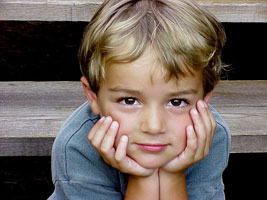 Despite efforts made by Switzerland, the implementation of Article 12 of the International Convention on the Rights of the Child, which guarantees that children have the right to participate in decision-making processes that are relevant to them, remains incomplete, especially within the justice system. In divorce proceedings, for example, children have the right to be heard by the judge: in reality, only a minority of them are heard. Child representation is only rarely requested and courts are not aware of the importance of children’s participation.
Despite efforts made by Switzerland, the implementation of Article 12 of the International Convention on the Rights of the Child, which guarantees that children have the right to participate in decision-making processes that are relevant to them, remains incomplete, especially within the justice system. In divorce proceedings, for example, children have the right to be heard by the judge: in reality, only a minority of them are heard. Child representation is only rarely requested and courts are not aware of the importance of children’s participation.
The Federal Supreme Court tends to take all of the meaning out of children’s participation rights: it believes that only children 12 years of age and older should be heard by the justice system on issues that affect them, that a minor does not have to be heard in a proceeding on legislation about foreigners or even in proceedings regarding school, since the parents’ representation is sufficient. Thus, many children are never able to express themselves, especially those that are the most at risk, such as young handicapped people, for example.
Environment
The average ecological footprint of the Swiss is 5gha: that means that if everyone consumed as much as the Swiss, we would need 3 planets! Pollution and overconsumption have an impact on the future prospects for children. The Swiss should therefore make more efforts to reduce these negative ecological consequences.

